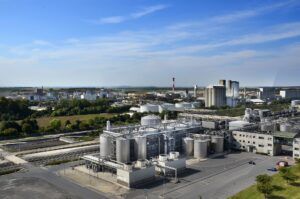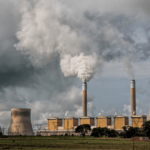The specific challenge is to resolve supply chain hurdles and enable the recovery and processing of functional molecules in residual streams from various sectors.
Scope
Create and integrate a sustainable supply-chain system into a value chain that is capable of using available or new technologies to use functional molecules in residual streams in high-value food and/or non-food applications.
The scope of this topic includes all necessary steps to collect, transport and store the residual streams being targeted at the processing site. These steps could include pre-treatment actions if they are necessary to transport and/or store any of the targeted residual streams. The quantities, qualities and physical original physical locations of these streams determine the optimal location and size of the operational site that they integrate into. The operational sites can be either centralised large-scale biorefineries, or small/medium-scale processing units, or a combination thereof.
Proposals
Proposals must:
- be suitable for direct acceptance and implementation by farmers, foresters or fishermen, depending on the supply chain concerned. The primary producers involved must participate in the design of the value chain and benefit from its results.
- include processing operations adapted to local circumstances.
- include evidence that sufficient quantities of the expected waste flows are available and can be exploited to effectively and sustainably maintain the business case for future expansion to commercial levels.
- include upstream processes if necessary (e.g. pre-treatments), conversion routes and downstream processes. Cascade concepts are a relevant part of the proposals.
- include physical, chemical or biotechnological routes (or combinations thereof)
- also, include market actors in the selected market sectors to ensure implementation and economic impact.
- If the proposals target food applications, they should also include considerations of safety and consumer perception of the specific consumer applications. All potential hazards associated with the processes and products developed should be analysed to check that the products will comply with relevant EU legislation on risk management, toxicity and safety of chemicals.
Expected impact
EXPECTED IMPACTS LINKED TO BBI JU KEY PERFORMANCE INDICATORS (KPIs):
- create at least one new cross-sector interconnection in the bio-based economy;
- create at least one new bio-based value chain;
- demonstrate at least two new consumer products containing bio-based food and/or non-food functional molecules that meet market requirements.
ENVIRONMENTAL IMPACTS:
- reduce overall CO2 emissions in the value chain by 20%, including from road transport where applicable;
- reduce landfill in the region of the selected processing location;
- contribute to the EU’s 2050 long-term strategy for a climate-neutral Europe by replacing fossil-based material with bio-based, renewable material.
ECONOMIC IMPACTS:
- extract at least 50% more value from the residual streams compared with the state of the art;
- produce at least one B2B or B2C product in sufficient quantities to allow validating the value chain.
SOCIAL IMPACTS:
- create new job opportunities in the bio-based sector in rural, coastal and/or urban areas;
- contribute to social development in the related primary sector(s) (e.g. rural, forest or coastal development) by adding new value-chains and by creating sustainable, high-tech jobs supported by educational and training steps as needed.
Deadline
03 September 2020 17:00:00 Brussels time







Leave a Reply